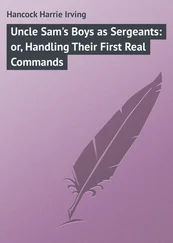Elbridge Brooks - Historic Boys - Their Endeavours, Their Achievements, and Their Times
Здесь есть возможность читать онлайн «Elbridge Brooks - Historic Boys - Their Endeavours, Their Achievements, and Their Times» — ознакомительный отрывок электронной книги совершенно бесплатно, а после прочтения отрывка купить полную версию. В некоторых случаях можно слушать аудио, скачать через торрент в формате fb2 и присутствует краткое содержание. ISBN: , Жанр: foreign_antique, foreign_prose, Биографии и Мемуары, на английском языке. Описание произведения, (предисловие) а так же отзывы посетителей доступны на портале библиотеки ЛибКат.
- Название:Historic Boys: Their Endeavours, Their Achievements, and Their Times
- Автор:
- Жанр:
- Год:неизвестен
- ISBN:http://www.gutenberg.org/ebooks/27157
- Рейтинг книги:3 / 5. Голосов: 1
-
Избранное:Добавить в избранное
- Отзывы:
-
Ваша оценка:
- 60
- 1
- 2
- 3
- 4
- 5
Historic Boys: Their Endeavours, Their Achievements, and Their Times: краткое содержание, описание и аннотация
Предлагаем к чтению аннотацию, описание, краткое содержание или предисловие (зависит от того, что написал сам автор книги «Historic Boys: Their Endeavours, Their Achievements, and Their Times»). Если вы не нашли необходимую информацию о книге — напишите в комментариях, мы постараемся отыскать её.
Historic Boys: Their Endeavours, Their Achievements, and Their Times — читать онлайн ознакомительный отрывок
Ниже представлен текст книги, разбитый по страницам. Система сохранения места последней прочитанной страницы, позволяет с удобством читать онлайн бесплатно книгу «Historic Boys: Their Endeavours, Their Achievements, and Their Times», без необходимости каждый раз заново искать на чём Вы остановились. Поставьте закладку, и сможете в любой момент перейти на страницу, на которой закончили чтение.
Интервал:
Закладка:
Now in Norway Earl Eric was dead. For thirteen years he had usurped the throne that should have been filled by one of the great King Olaf's line; and, at his death, his handsome young son, Earl Hakon the Fair, ruled in his father's stead. And when young King Olaf heard this news, he shouted for joy and cried to Rane:
"Now, home in haste, for Norway shall be either Hakon's heritage or mine!"
"'T is a fair match of youth 'gainst youth," said the trusty helmsman; "and if but fair luck go with thee, Norway shall be thine!"
So, from "a place called Furovald," somewhere between the mouths of Humber and of Tees, on the English coast, King Olaf, with but two stout war-ships and two hundred and twenty "well-armed and chosen persons," shook out his purple sails to the North Sea blasts, and steered straight for Norway.
As if in league against this bold young viking the storm winds came rushing down from the mountains of Norway and the cold belt of the Arctic Circle and caught the two war-ships tossing in a raging sea. The storm burst upon them with terrific force, and the danger of shipwreck was great. "But," says the old record, "as they had a chosen company and the king's luck with them all went on well.
"Thou able chief!"
sings the faithful saga-man,
"With thy fearless crew
Thou meetest with skill and courage true
The wild sea's wrath
On thy ocean path.
Though waves mast-high were breaking round,
Thou findest the middle of Norway's ground,
With helm in hand
On Saelö's strand."
Now Sael was Norse for "lucky" and Saelö's Island means the lucky island.
"I'll be a lucky king for landing thus upon the Lucky Isle," said rash young Olaf, with the only attempt at a joke we find recorded of him, as, with a mighty leap, he sprang ashore where the sliding keel of his war-ship ploughed the shore of Saelö's Isle.
"True, 't is a good omen, King," said old Rane the helmsman, following close behind.
But the soil of the "lucky isle" was largely clay, moist and slippery, and as the eager young viking climbed the bank his right foot slipped, and he would have fallen had not he struck his left foot firmly in the clay and thus saved himself. But to slip at all was a bad sign in those old, half-pagan, and superstitious times, and he said, ruefully: "An omen; an omen, Rane! The king falls!"
"Nay, 't is the king's luck," says ready and wise old Rane. "Thou didst not fall, King. See; thou didst but set fast foot in this thy native soil of Norway."
"Thou art a rare diviner, Rane," laughed the young king much relieved, and then he added solemnly: "It may be so if God doth will it so."
And now news comes that Earl Hakon, with a single war-ship, is steering north from Sogne Fiord; and Olaf, pressing on, lays his two ships on either side of a narrow strait, or channel, in Sandunga Sound. Here he stripped his ships of all their war-gear, and stretched a great cable deep in the water, across the narrow strait. Then he wound the cable-ends around the capstans, ordered all his fighting-men out of sight, and waited for his rival. Soon Earl Hakon's war-ship, crowded with rowers and fighting-men, entered the strait. Seeing, as he supposed, but two harmless merchant-vessels lying on either side of the channel, the young earl bade his rowers pull between the two. Suddenly there is a stir on the quiet merchant-vessels. The capstan bars are manned; the sunken cable is drawn taut. Up goes the stern of Earl Hakon's entrapped war-ship; down plunges her prow into the waves, and the water pours into the doomed boat. A loud shout is heard; the quiet merchant-vessels swarm with mail-clad men, and the air is filled with a shower of stones, and spears, and arrows. The surprise is complete. Tighter draws the cable; over topples Earl Hakon's vessel, and he and all his men are among the billows struggling for life. "So," says the record, "King Olaf took Earl Hakon and all his men whom they could get hold of out of the water and made them prisoners; but some were killed and some were drowned."
Into the "fore-hold" of the king's ship the captive earl was led a prisoner, and there the young rivals for Norway's crown faced each other. The two lads were of nearly the same age – between sixteen and seventeen, – and young Earl Hakon was considered the handsomest youth in all Norway. His helmet was gone, his sword was lost, his ring-steel suit was sadly disarranged, and his long hair, "fine as silk," was "bound about his head with a gold ornament." Fully expecting the fate of all captives in those cruel days – instant death, – the young earl nevertheless faced his boy conqueror proudly, resolved to meet his fate like a man.
"They speak truth who say of the house of Eric that ye be handsome men," said the King, studying his prisoner's face. "But now, Earl, even though thou be fair to look upon, thy luck hath failed thee at last."
"Fortune changes," said the young earl. "We both be boys; and thou, king, art perchance the shrewder youth. Yet, had we looked for such a trick as thou hast played upon us, we had not thus been tripped upon thy sunken cables. Better luck next time."
"Next time!" echoed the king; "dost thou not know, Earl, that as thou standest there, a prisoner, there may be no 'next time' for thee?"
The young captive understood full well the meaning of the words. "Yes, King," he said; "it must be only as thou mayst determine. Man can die but once. Speak on; I am ready!" But Olaf said: "What wilt thou give me, Earl, if at this time I do let thee go, whole and unhurt?"
"'T is not what I may give, but what thou mayst take, King," the earl made answer. "I am thy prisoner; what wilt thou take to free me?"
"Nothing," said the generous young viking, advancing nearer to his handsome rival. "As thou didst say, we both be boys, and life is all before us. Earl, I give thee thy life, do thou but take oath before me to leave this my realm of Norway, to give up thy kingdom, and never to do battle against me hereafter."
The conquered earl bent his fair young head.
"Thou art a generous chief, King Olaf," he said. "I take my life as thou dost give it, and all shall be as thou wilt."
So Earl Hakon took the oath, and King Olaf righted his rival's capsized war-ship, refitted it from his own stores of booty, and thus the two lads parted; the young earl sailing off to his uncle, King Canute, in England, and the boy viking hastening eastward to Vigen, where lived his mother, the Queen Aasta, whom he had not seen for full five years.
It is harvest-time in the year 1014. Without and within the long, low house of Sigurd Syr, at Vigen, all is excitement; for word has come that Olaf the sea-king has returned to his native land, and is even now on his way to this, his mother's house. Gay stuffs decorate the dull walls of the great-room, clean straw covers the earth-floor, and upon the long, four-cornered tables is spread a mighty feast of mead and ale and coarse but hearty food, such as the old Norse heroes drew their strength and muscle from. At the door-way stands the Queen Aasta with her maidens, while before the entrance, with thirty "well-clothed men," waits young Olaf's stepfather, wise Sigurd Syr, gorgeous in a jewelled suit, a scarlet cloak, and a glittering golden helmet. The watchers on the house-tops hear a distant shout, now another and nearer one, and soon, down the highway, they catch the gleam of steel and the waving of many banners; and now they can distinguish the stalwart forms of Olaf's chosen hundred men, their shining coats of ring-mail, their foreign helmets, and their crossleted shields flashing in the sun. In the very front rides old Rane, the helmsman, bearing the great white banner blazoned with the golden serpent, and, behind him, cased in golden armor, his long brown hair flowing over his sturdy shoulders, rides the boy viking, Olaf of Norway.
Читать дальшеИнтервал:
Закладка:
Похожие книги на «Historic Boys: Their Endeavours, Their Achievements, and Their Times»
Представляем Вашему вниманию похожие книги на «Historic Boys: Their Endeavours, Their Achievements, and Their Times» списком для выбора. Мы отобрали схожую по названию и смыслу литературу в надежде предоставить читателям больше вариантов отыскать новые, интересные, ещё непрочитанные произведения.
Обсуждение, отзывы о книге «Historic Boys: Their Endeavours, Their Achievements, and Their Times» и просто собственные мнения читателей. Оставьте ваши комментарии, напишите, что Вы думаете о произведении, его смысле или главных героях. Укажите что конкретно понравилось, а что нет, и почему Вы так считаете.












